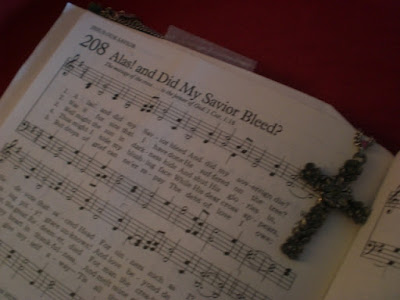Daffodils in spring gladden my heart like nothing else. I grew up in Western Washington’s Puyallup Valley, which for decades has celebrated that flower with a parade and outstanding teen girls chosen as “daffodil royalty.” But for me, it’s more than a spring party. The trumpeted golden flowers to me speak of the glory of God. This time of year, I often search for You-Tube excerpts of the solo, “The Trumpet shall Sound,” from Handel’s Messiah. Nothing grips my heart like its straight-from-scripture lyrics: about the someday-beginning of forever-life with God:
In a moment, in the twinkling of an eye, at the last trump: for the trumpet shall sound, and the dead shall be raised incorruptible, and we shall be changed. (1 Corinthians 15:52 KJV)
Along with the prospect of a sudden rush to eternity comes the self-examination in anticipation of the searing, pure eyes of a Holy God. Have I glorified Him with my life? Have I sought to serve Him? Did people see Jesus in Me? Or did I throw away my opportunities, instead spending my time in worthless activities? In our media-saturated culture, which connects the number of Facebook “followers” with status, that's an uncomfortable question.
Maybe I should rephrase this: If God read your Facebook posts, how would you feel?
I've come to appreciate the spiritual insights of Christian pastor and author A.W. Tozer (1897-1963). He spoke and wrote widely of the deeper inner spiritual life. When asked about the perception of “holiness” as a “negative kind of piety” that people shy away from, Tozer replied:
No, of course not! Holiness in the Bible means moral wholeness—a positive quality which actually includes kindness, mercy, purity, moral blamelessness and godliness. It is always thought to be of in a positive, white intensity of degree.*
A former pastor (now deceased) one year ministered healing words through a daily devotional based on a read-through-the-Bible calendar. His widow sent me a copy of the printed devotions, and it has enriched my Bible study for now a second year. He died before the predicted “final trumpet sound” when Christ returns again. But...could I hear it in my lifetime? I don't know. I do know this: every day is closer.
For several years a church I once attended had a very senior pastor on staff for “visitation.” He outlived two wives, dying in his nineties! But I was told that in his last year, in a little bedroom suite he shared with his third wife at a senior home, there was a note on their door: “Perhaps today.”
We who knew him, knew his meaning: Jesus might come before he died. Well, he died. But those two words continue to come to mind as eternity gets closer. Especially they revisit every spring, when the earth awakens and my favorite flowers inch up with their golden, trumpet crowns.
Earth-words cannot adequately describe the worship culture of Heaven. But angels with trumpets are prominently mentioned. Yes, the trumpet shall sound—infinitely louder and more joyful than the golden but mute daffodils of spring.
*A.W. Tozer, I Call It Heresy (Harrisburg, PA: Christian Publications, 1974). p. 63.
This short video (at the beginning) highlights the trumpet solo from Handel's Messiah:





